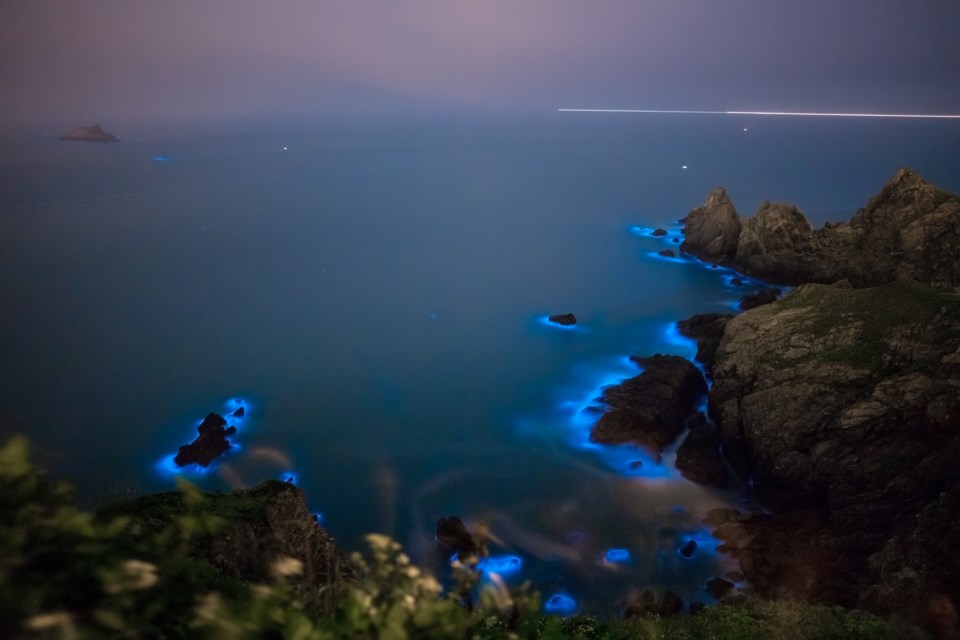Want to go see the fireflies of the sea?
The internet is scattered with mesmerizing photos and surreal videos of one of our world's nighttime wonders: glow-in-the-dark oceans.
The sparkles, which are most commonly blue, can only be seen at night, but, even then, not every night. Bioluminescent water can be found about anywhere in the ocean.
But what is bioluminescence anyways?
The glow-in-the-dark magic isn't so magical; the light comes from tiny organisms found in oceans.
These cool creatures are a type of marine phytoplankton (also called algae) called dinoflagellates. These tiny phytoplankton are single-celled organisms that float near the surface of the water and, when threatened, emit light as means to distract or evade predators.
Any disturbance, whether tossing a rock, swirling a stick, or swimming in it, will cause luminescence.
Where can you see bioluminescence around Vancouver?
Bioluminescent water is best seen in the dark far away from light pollution and a few days before or after a full moon (though a night with a new moon is best). There's also a better chance of seeing bioluminescence during algae blooms.
Around Vancouver, beaches west of the city are good spots to try to see it. Bookmark this list of locations for your midnight adventure.
- Spanish Banks
- Jericho Beach
- Locarno Beach
- Acadia Beach
- Deep Cove
- Porteau Cove
- Whytecliff Park
- Desolation Sound (if you're willing to travel)



